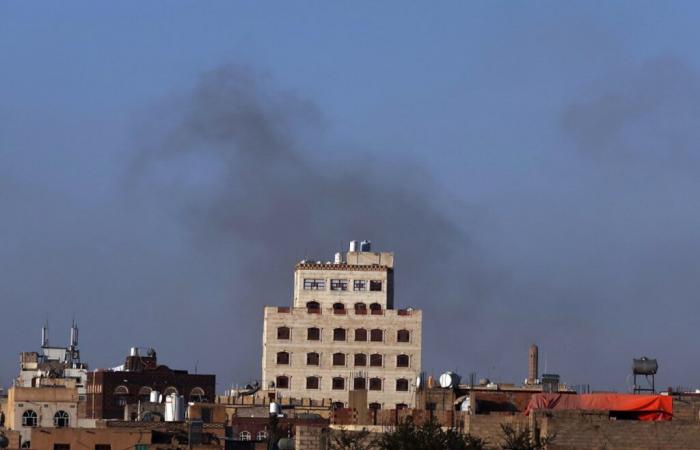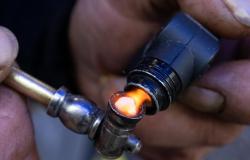Keystone-SDA
Houthi rebels in Yemen have claimed responsibility for missile and drone attacks against Israel, the day after deadly Israeli raids on sites controlled by these rebels, including the Sanaa airport where the head of a UN organization was located. .
This content was published on
December 27, 2024 – 11:35
(Keystone-ATS) In a statement, the Houthis said they had fired a missile towards Tel Aviv airport (central Israel), launched drones towards the city of Tel Aviv and attacked a ship in the Arabian Sea.
“Israeli aggression will only increase the determination of the Yemeni people to continue to support the Palestinian people,” they added.
In Israel, the army claimed that a missile launched from Yemen had been intercepted before crossing Israeli territory. Warning sirens were sounded in central Israel due to the possibility of falling debris.
The Houthi attacks come after Israeli strikes Thursday on rebel-controlled sites, including Sanaa airport, bases, power plants and port facilities elsewhere in Yemen, what the insurgents called “a crime.”
Six people died in Yemen, including four at Sanaa airport, according to the Houthis.
The director-general of the World Health Organization (WHO), Tedros Adhanom Ghebreyesus, was at Sanaa airport at the time of the bombing and told X that he was “safe and sound.” However, a member of the crew of his plane was injured.
According to the WHO, Mr. Tedros is still in Yemen.
Control tower hit
In a press conference, the Deputy Minister of Transport in the rebel administration, Faisal al-Sayani, clarified that flights had resumed Friday at 10:00 local time (08:00 Swiss time) at Sanaa airport.
According to him, the attack on the airport took place when many passengers were preparing to board a flight from Sanaa and another plane was preparing to land. “The passengers were evacuated in accordance with an emergency plan. »
The control tower was “directly affected” in addition to the departure room and navigation equipment, he added.
Since 2022, only the national airline Yemenia has provided a limited commercial connection from Sanaa airport, with Amman as the main destination. Between 2016 and 2022, it only hosted humanitarian flights operated by the UN.
The Israeli army claimed to have targeted Thursday “military infrastructure used by the Houthis at Sanaa airport” as well as power plants and military sites, notably in Hodeida (west), the day after missile and drone attacks. Houthis against Israel.
The rebels, who control large parts of war-torn Yemen including the capital Sanaa, are supported by Iran, Israel’s sworn enemy. They are part of what Iran calls the “axis of resistance” against Israel, which also brings together the Palestinian Islamist movement Hamas, Iraqi groups and Lebanese Hezbollah.
“We will hunt them down”
Since the start of the war in Gaza triggered on October 7, 2023 by an unprecedented attack by Hamas on Israeli soil, they have launched numerous attacks against Israel, in “solidarity” with the Palestinians.
Israeli Prime Minister Benjamin Netanyahu warned on Thursday that his country would continue to strike the Houthis.
“We are determined to cut off this terrorist branch from the Iranian axis of evil,” he said after asking the army to “destroy the infrastructure” of these rebels.
“We are going to hunt down all the Houthi leaders (…) No one will be able to escape us,” threatened his Defense Minister Israel Katz.
Most Houthi attacks against Israel were countered or caused only material damage. But last Saturday, a missile injured 16 people in Tel Aviv and in July, an Israeli civilian was killed in Tel Aviv by a drone explosion.
Israel responded with airstrikes in Yemen, where the Houthis took control of Sanaa in 2014 after a blistering offensive, sparking war in the poor country on the Arabian Peninsula.
The rebels also attack ships linked according to them to Israel, the United States or the United Kingdom, in the Red Sea and in the Gulf of Aden, despite retaliatory strikes on their territory also carried out by the army American.






